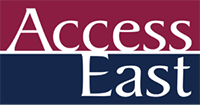What Does the Law Require of Me?
Changes in tax law in December 2017 did away with the rule that U.S. citizens and legal residents had to have health insurance or face a tax penalty. This change took effect for the 2019 tax year (though the penalty remained for the 2018 tax year, with taxpayers being able to apply for an exemption through the IRS at the time they filed their taxes).
Exemptions from Health Insurance Are Granted to People Who:
-
- Would have to spend more than 8 percent of their income to buy a qualifying plan
- Don’t have to pay taxes because their incomes are too low
- Experience only a short coverage gap (less than three months)
- Are members of a federally recognized American Indian tribe (or are Alaska Native Claims Settlement Act shareholders)
- Are eligible for care through a tribal healthcare provider
- Are members of a recognized religious sect with objections to insurance
- Are members of a healthcare-sharing ministry
- Experience a hardship (hardships are explained here)
- Are incarcerated during a coverage year
- Are not lawfully present in the United States
Minimum Essential Coverage Includes:
-
- Any health plan bought through the Health Insurance Marketplace
- Most employer-sponsored plans, including COBRA and retiree coverage
- Individual health plans bought outside the Health Insurance Marketplace, if they meet the standards for qualified health plans
- Medicare Part A and Medicare Advantage plans
- Medicaid, except for limited-coverage plans
- C. Health Choice for children
- Coverage under a parent’s plan
- Most student health plans (check with your school)
- Certain types of veterans health coverage through the Veterans Administration
- Most TRICARE coverage
ACA Insurance and Your Income Taxes:
When you apply for ACA insurance through the Health Insurance Marketplace, you must agree to file an income tax return for each coverage year. If you’re married, you have to file a joint income-tax return.
If anyone in your household has a Marketplace insurance plan, you’ll receive IRS Form 1095-A by mid-February of that coverage year.
If you don’t receive your 1095-A form by mid-February, you can log-in to your Health Insurance Marketplace account and get it, or you can call the Marketplace at 1-800-318-2596 and ask that it be mailed to you. (When forms don’t arrive by mail as they should, it’s usually because that person’s current mailing address isn’t listed on his or her Marketplace application for that year.)
Your 1095-A contains information about Marketplace plans any member of your household had including:
-
- The premiums paid
- Premium tax credits used
- A figure called “second lowest cost Silver plan” (SLCSP). This is not necessarily the plan you enrolled in, but you’ll need the SLCSP to determine your premium tax credit.
Tax form 1095-A is used to complete another form (IRS Form 8962) to “reconcile” the previous year’s premium tax credits.
Reconciling tax credits can start to sound pretty confusing pretty quickly; you’re welcome to contact one of our Certified Marketplace Navigators at 1 (877) 755-5438 or (252) 847-3027 for a fuller explanation based on your own circumstances.
Please note that our funding does not allow us to provide actual tax-filing assistance.
Basically, reconciling your tax credits means finding out if you used the right amount of premium tax credit during the year. If you used more than you qualify for, then you’ll have to pay the difference at tax time. If you used less, you’ll get the difference in your tax refund.
Note that if you don’t reconcile your premium tax credits, you may lose them altogether, and owe a penalty on your taxes. You may also lose health coverage for the rest of the year as well, and you won’t be allowed to enroll again until your premium tax credits have been reconciled.
For more information on how your ACA health-insurance policy relates to your taxes, click here.
